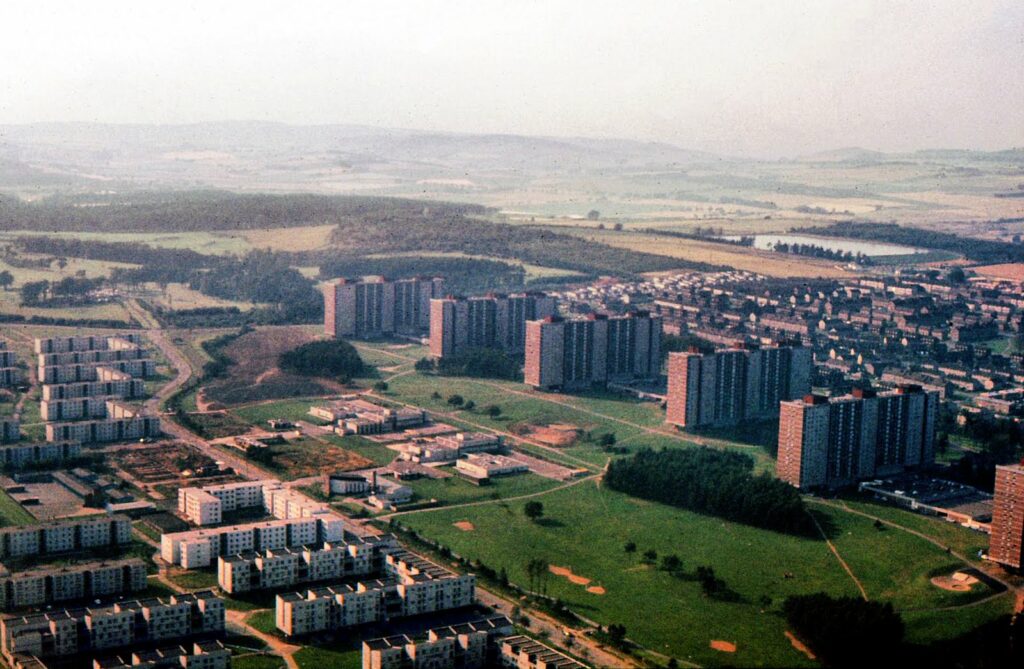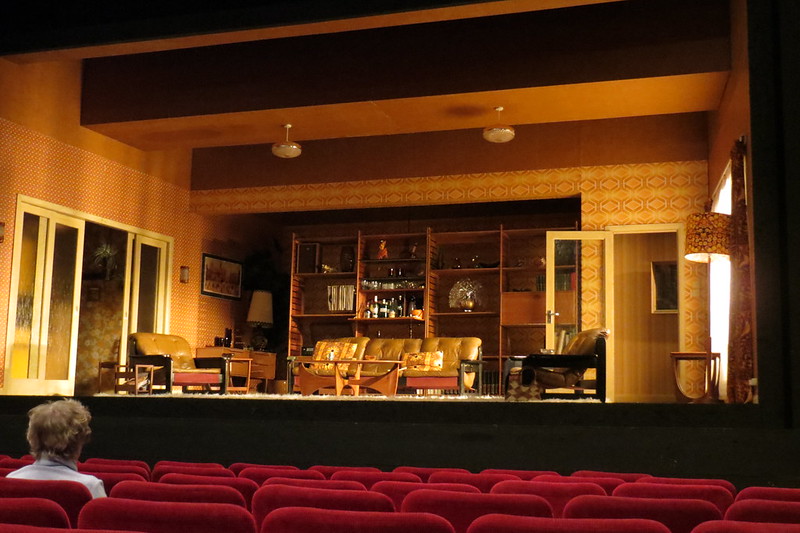
Freedom is a word and ideal that is constantly bandied about, invoked and promised. It is so powerful that it can topple brutal dictatorships, change the mood of a nation and bring people out into the street in their hundreds of thousands.
Last weekend Boris Johnson spoke to the Tory Spring Conference in Blackpool, and invoked the power of freedom. But he went one step further and linked the desire of the Ukrainian people to live in freedom and resist Russian aggression with the UK vote for Brexit.
This controversial remark brought forth widespread condemnation. More predictably and damningly in a party now used to defending untruth and the brazen lie, the likes of Chancellor Rishi Sunak and Health Secretary Sajid Javid had to pretend that Johnson said no such thing and made no connection or ‘equivalence’ and (in the case of Javid) that he was just making a general point about self-determination. Trying to have your cake and eat it – the only core belief of Johnsonism – saw Downing Street concede that ‘it sounded better written than it did when spoken’.
Freedom’s allure is everywhere, from the promise of Brexit to the clarion call of the most passionate Scottish independence supporter, from Nigel Farage’s ‘little Englanderism’ to the ‘Braveheart’ element of Scottish independence. It is present in the determination of those prepared to risk their lives in Ukraine defending their nation and democracy.
It was invoked in the Cold War by the West in its opposition to Soviet tyranny, seen to triumph in the fall of the Berlin Wall and collapse of the Soviet Union. And it was continually cited as the driving force behind Thatcherism and Reaganism – not just in the Cold War but domestically as they claimed to drive back the forces of socialism and the state.
We are now thirty years on from the end of the Soviet Union. The world around us in the West, the East, developed and developing, is made in the image of the name of ‘freedom’ to advance so-called free-market economics. In reality this has come to mean marketisation, corporatisation and the rise of a global rentier class whose wealth is related to the monopolies and near-monopolies they bought at knock-down prices from Russian oligarchs to UK speculators.
We have been presented with a simple morality tale that the West and the call of ‘freedom’ won the Cold War, that (in terms Ronald Reagan would have understood from one of his B movies) that the good guys vanquished the bad guys, driving them out of town.
As the Polish-born thinker Zygmunt Bauman pointedly asked over twenty years ago: ‘If freedom has won how does it come about that human ability to imagine a better world … was not among the trophies of victory?’ He continued: ‘What sort of freedom is it that discourages imagination and tolerates the acquiescence of free people in matters that concern them?’
Across the West the freedom we are presented with is constrained and curtailed. We are invited, should we have the wherewithal, to embark in conspicuous consumption to grotesque levels – and eulogise as an example of individual worth and success which everyone else should aspire to. Freedom for the wealthiest 26 people in the world gives them the equivalent wealth to the poorest 50% of the entire planet.
Life in the sixth-richest economy in the world – the UK – is filled with luxury and indulgencies for the super-rich but increasingly bleak lives for a growing section of the population. The rise in energy prices, the slashing of the welfare state and a Tory Government with an open contempt for the poor mean that, in the words of financial expert Martin Lewis, the UK is seeing the emergence of widespread absolute poverty. After decades of systematic relative poverty, millions now struggle to afford the essentials such as food and heating. That does not feel like a society which champions or understands ‘freedom’.
A large part of British and Scottish politics is completely cut off and uncomprehending of such grim realities. Rishi Sunak is the wealthiest person ever to be UK chancellor; his answer to rising energy bills was a scheme that could only have been born of someone like himself from the Goldman Sachs class who has no direct grasp of the difficult choices millions make each day.
Tory Party Chair Oliver Dowden added insult to injury with a speech at the weekend at the Tory spring conference that suggested he was living in another age:
As I walk my children through the calm suburbia of Hertfordshire, its values so derided by the left, I actually reflect on the great fortune we have to live in a nation defined by stability, security … and, yes Conservatism. For me, the privet hedges of suburbia are the privet hedges of a free people. And I will make it my mission as Chairman to defend those values and those freedoms.
This would be laughable if it were not being passed off as part of the core political ‘vision’ of British Conservatism and connected to the war on ‘woke’ and the ‘culture wars’. Never mind the core functions of government and the wellbeing of people.
It has echoes of John Major’s cringeworthy speech of 1993 (when he was prime minister) about ‘old maids’ bicycling and ‘long shadows on county grounds, warm beer, invincible green suburbs, dog lovers and pools fillers’ – invoking and citing George Orwell’s The Lion and the Unicorn,published in 1941 as a defence of the English character. There is nothing remotely of the insight of Orwell in Major or Dowden thirty years later but what they are about is Tory England and how small, ridiculous and unconnected to the real England their politics are. And yet still over the period they have been able to win England – and hence win elections.
This is what politics is reduced to when it fails: presenting fantasylands while millions worry about how to get by while government goes through the motions that it cares and that its initiatives will make a difference. At the same time the corrosive effect of the corporate handover of large parts of public services has reduced accountability, transparency and any sense of collective decency and compassion.
How we lost the freedom we had
It never used to be so brazen. The arc of post-war Britain and Scotland from 1945–75 presented a very different set of public values, government driven by concern for people and a social contract between government and citizens. All of this was imperfect and not as progressive and egalitarian as it could have been, but compared to what came after it there was a humanity at the heart of public life.
Freedom in post-war Scotland and Britain saw a rising generation of the working class in secure jobs, rising prosperity and living standards, and a conviction throughout the 1960s and into the 1970s that the future was a world which was going to get better. There would be more opportunity and choice for working-class children, greater equality and less privilege earned through birth and because of who you knew.

Without making out it was an unblemished ‘golden era’, this was my broad experience of growing up in Dundee in the 1970s. I was recently talking to a group of bright working-class young people from what used to be the council schemes of Dundee and they could not believe it when I told them that my experience of growing up in the Ardler housing estate on the outskirts of the city in the 1970s was one with little unemployment, crime or graffiti. They responded that all they had known was a world of mass unemployment, crime, drugs and insecurity.
My parents did not talk about ‘freedom’ because they probably believed they lived a life filled and informed by it. They were conscious that they were the first working-class generation to have these choices, security and stability compared to their parents and they believed that this was a permanent shift which would continue into the future.
One cultural production of the 1970s spoke to the experience of my parents and that was Abigail’s Party by Mike Leigh, which had strong women characters and highlighted the changing relationships of men and women and the emergence of greater sexual freedom. My parents had 1970s fashionable furniture, held parties and get-togethers, and my mother (just like Beverly) had a sizeable set of leather-bound fiction and listened to classical music. In all this there was an element of affectation about taste taken to caricature by Leigh.
But what I took from the play in its aftermath was that there was something about the rising tide of working-class opportunity and world of freedom and the choices, confusions and even emptiness which could spring from this. What was it like to be the first working-class generation in the history of Scotland and the UK to experience a degree of freedom of which their parents but could only have dreamt?
That real, lived freedom was brutally attacked by a succession of governments in the UK and elsewhere so that the forces of capital and privilege could take an unprecedented share of wealth. Instead of that powerful version of freedom we have politicians such as Boris Johnson and Oliver Dowden insult our intelligence by invoking a fantasy ‘freedom’ while having no interest in connecting to everyday life.
This disjuncture cannot go on without there being a social cost: a political class in the UK and across the West talking the language of freedom, meritocracy and social mobility while doing all they can to destroy the ladders for large parts of the working class. Think that sounds too black and white? What about P&O staff sacked by their employers without any notice or consultation, or student-loan finance changed in England and Wales to even more disadvantage and an increased debt burden for working class people going into higher education?
If this continues there will be a social cost: not just potentially rising mental health problems, unhappiness and crime, but social unrest and a political reaction. Freedom is a powerful, beautiful concept which continues to move millions and cannot be reduced to a bankrupt soundbite of this shoddy lot of second-rate serial liars and chancers, bereft of a moral compass or even understanding the society they unfortunately ‘govern’.
What was precious – freedom – has been lost via concerted attack and cheapened and hollowed out in the name of self-interest and corporate capture. How we try to get it back will shape the next few decades, the future of the West and even humanity. And if we ever retrieve it, we can never again be so careless to let such shysters and bloviators take it away and sell it off to the most disreputable passing oligarch or foreign government they can find.
Gerry Hassan is a writer, commentator, academic and Professor of Social Change at Glasgow Caledonian University. His books include ‘The Strange Death of Labour Scotland’, ‘The People’s Flag and the Union Jack: An Alternative History of Britain and the Labour Party’ and the forthcoming ‘Scotland Rising: The Case for Independence’. His writing and research can be found at www.gerryhassan.com.

Spot on! A lot of Boomers thought, like myself, that the system they grew up with, in my case the 50’s/60’s, was a natural + on-going norm. Even the advent of Thatcher was perceived as something to fight against, from an established consensus- but the failure of Kinnock in ‘92 (fellow boomer+ 1st. graduate,etc.etc) was a straw in the wind that we were the lobster in the pot, thinking the water was just pleasantly warm. Neo-lib Thatcher-lite under Blair&Cameron followed+ here we are. Waiting for England to explode surely can’t be the answer?